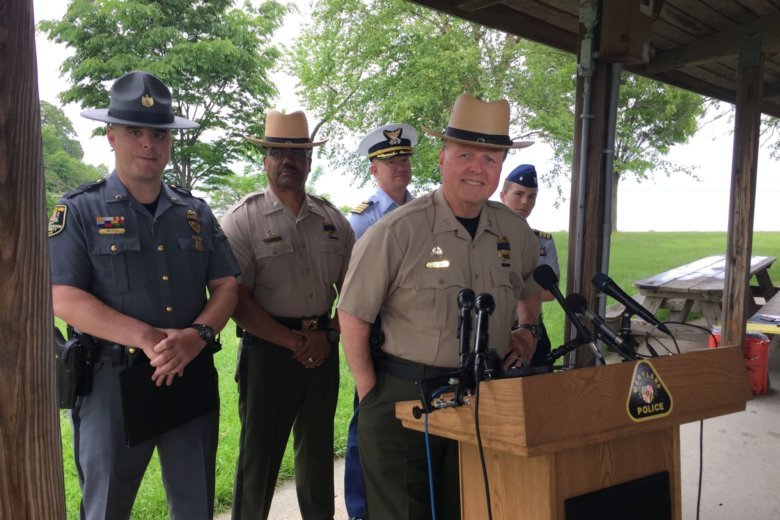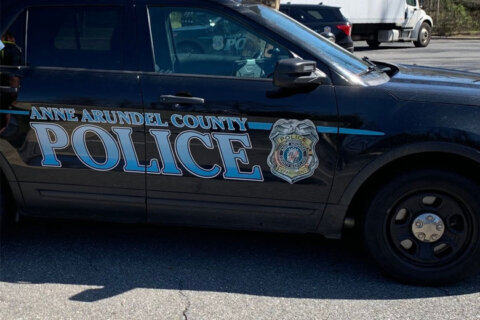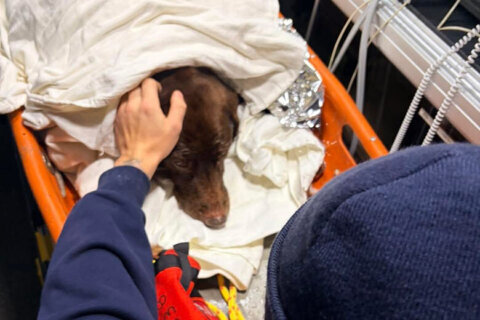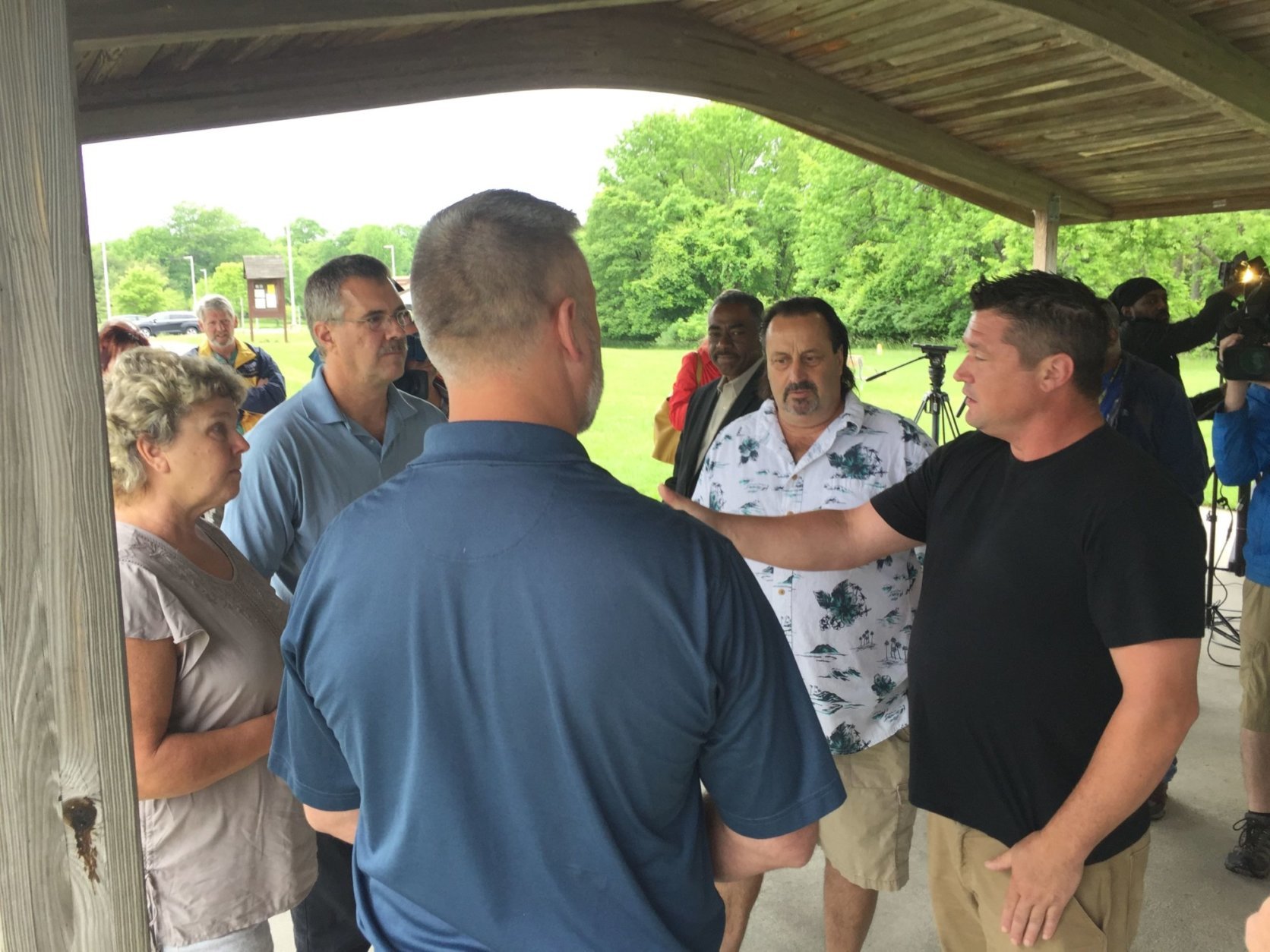
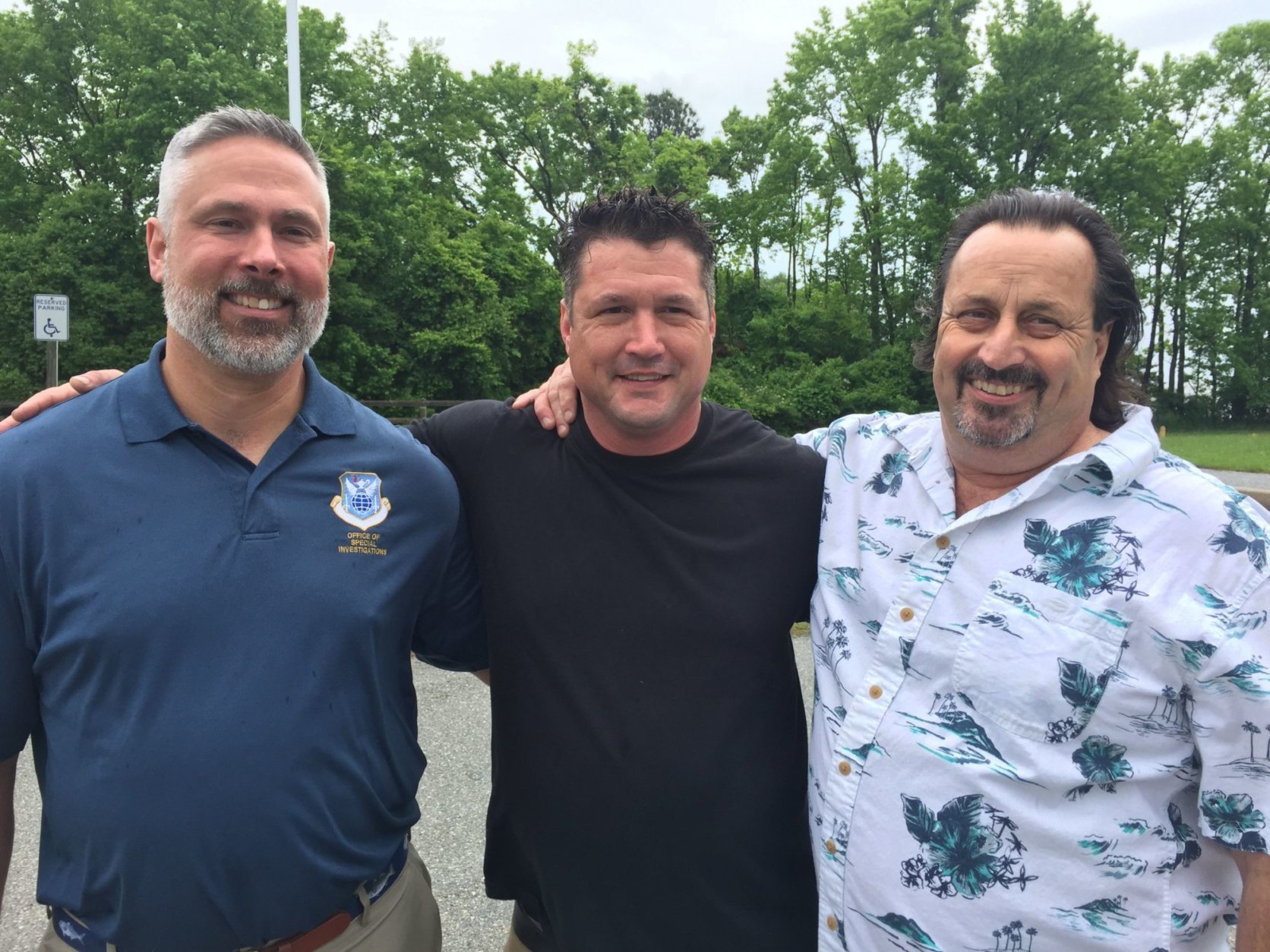
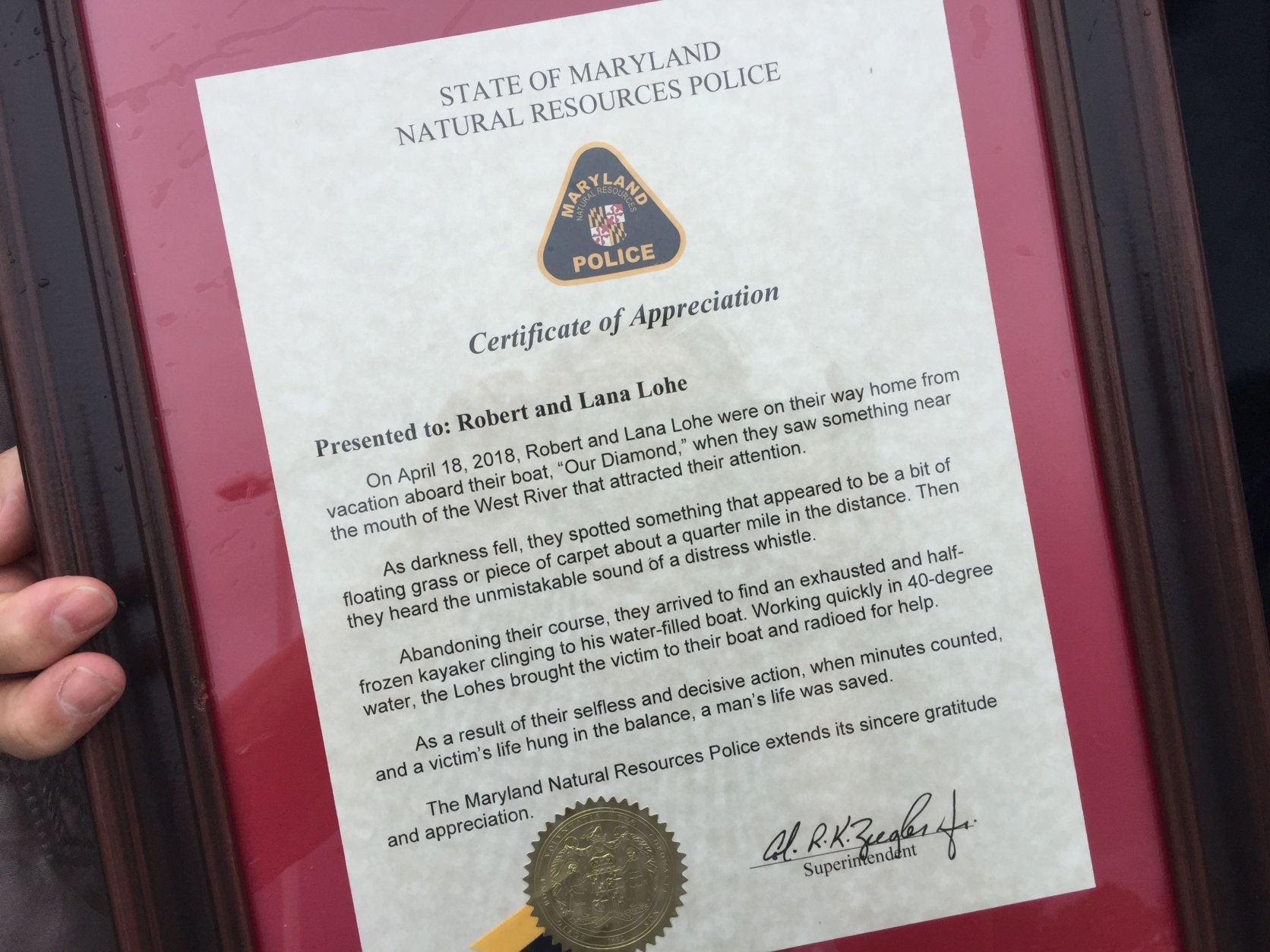
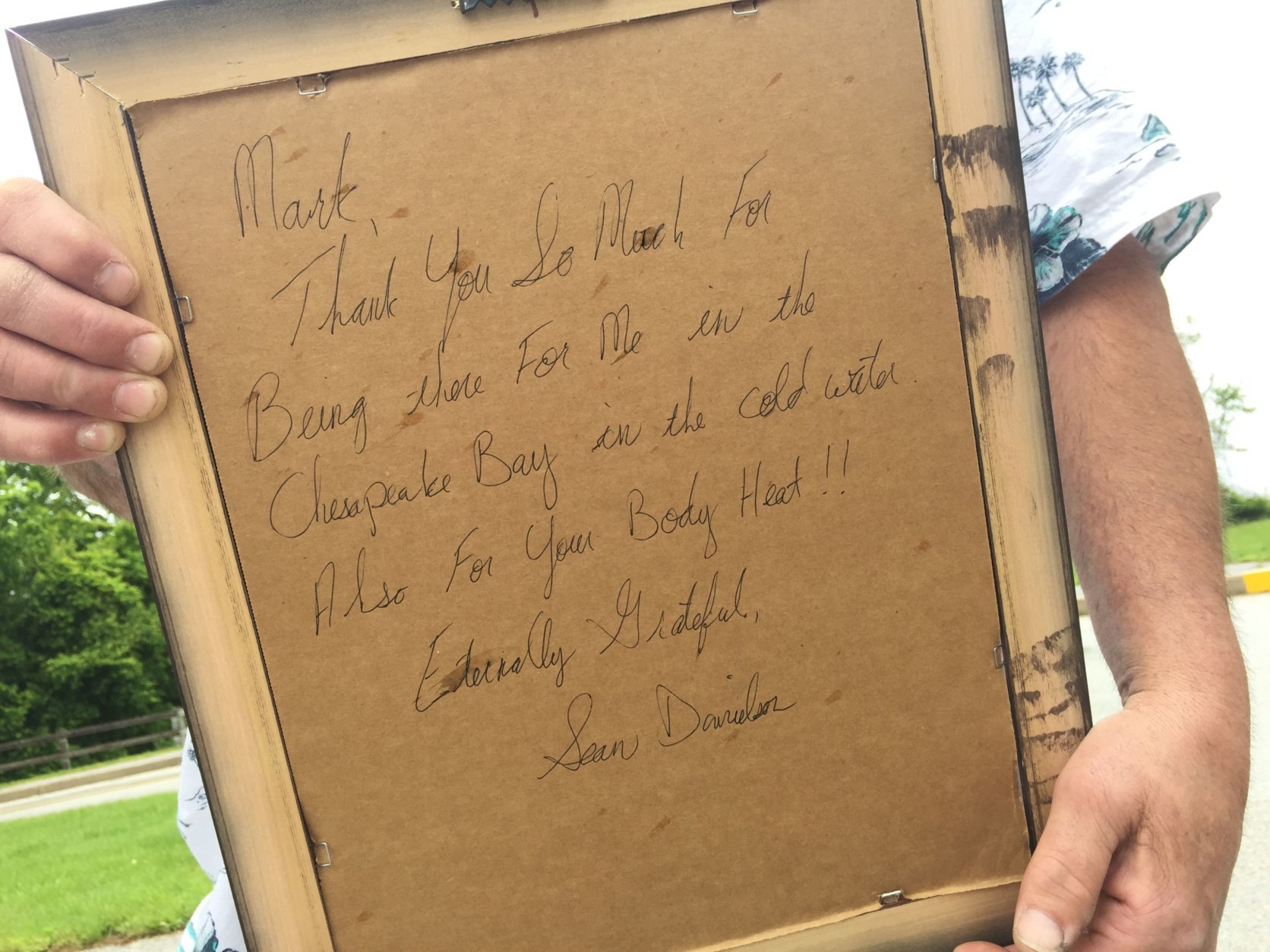
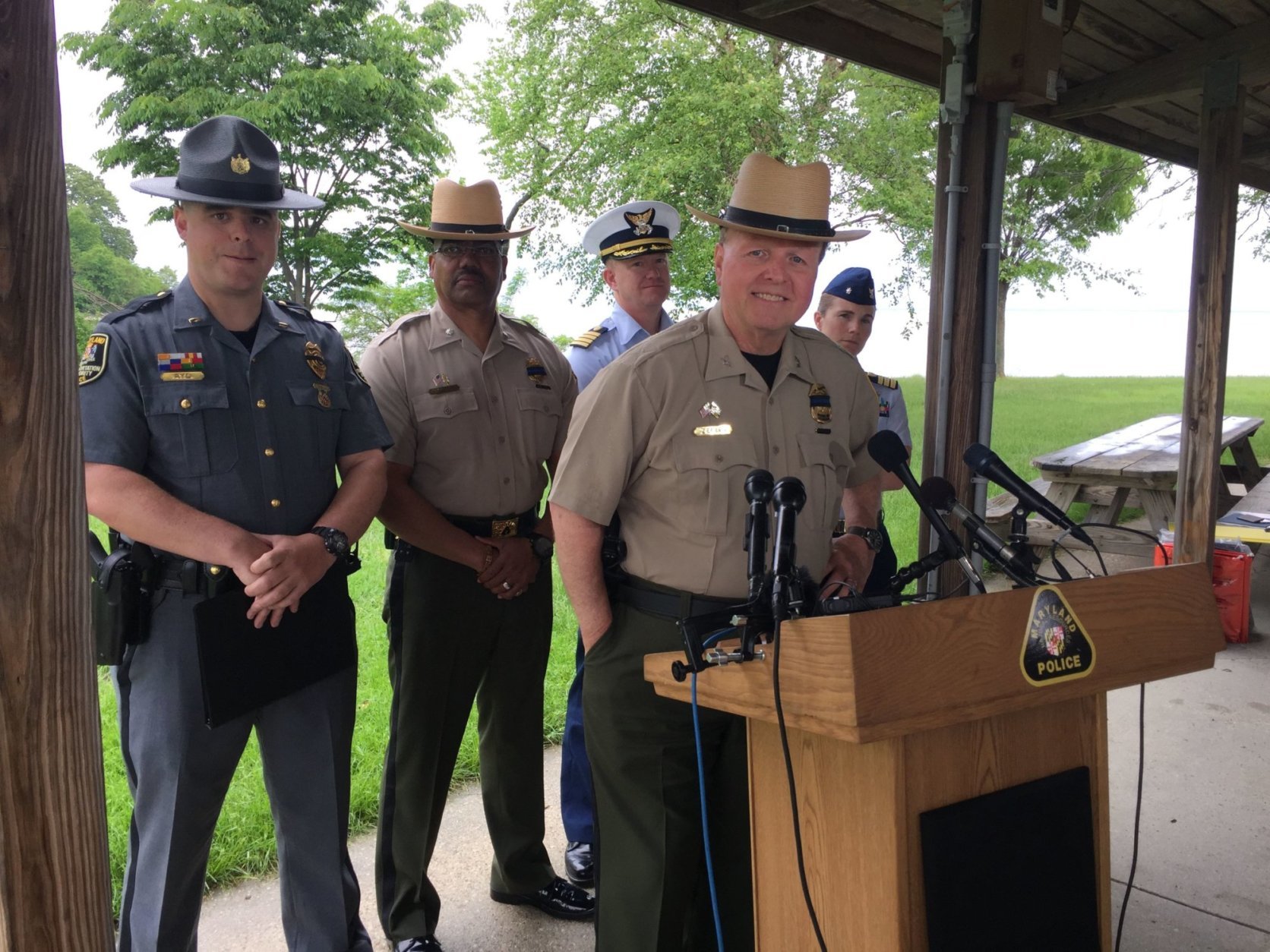
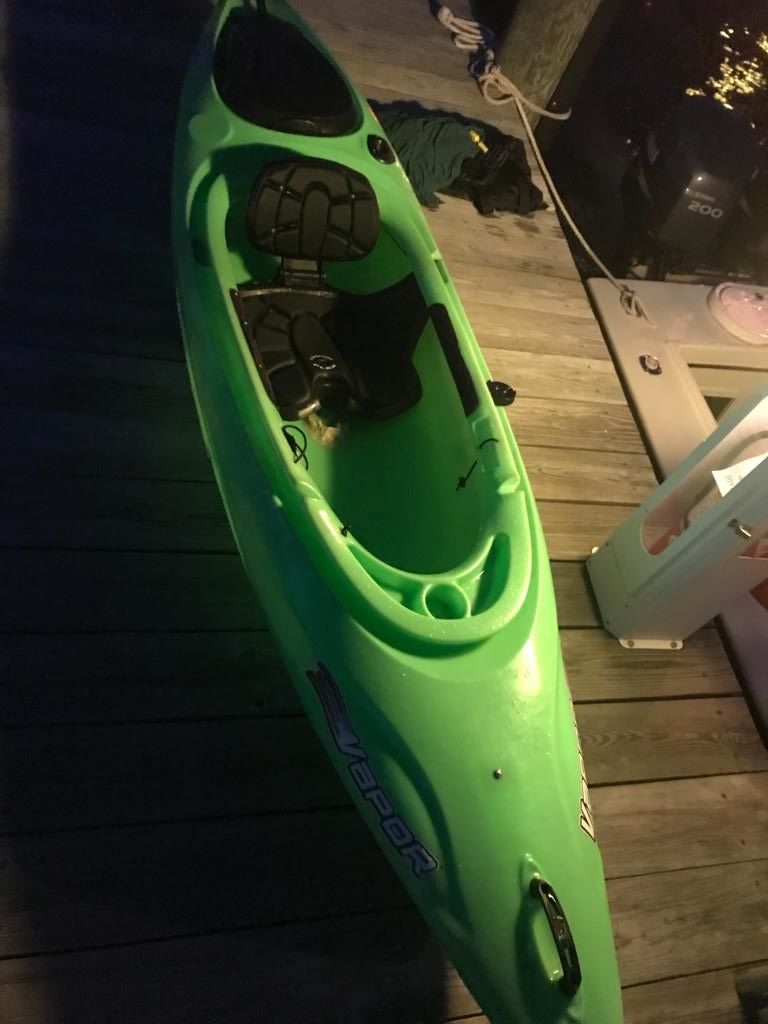
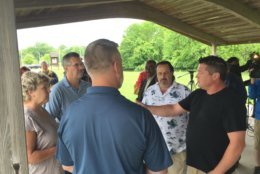

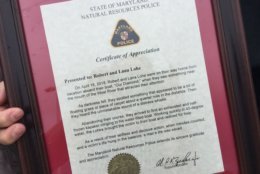
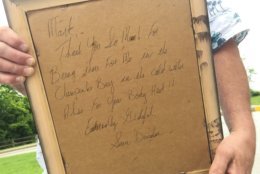
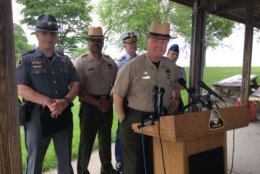
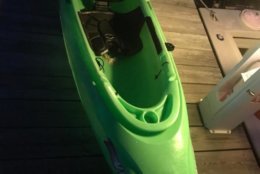
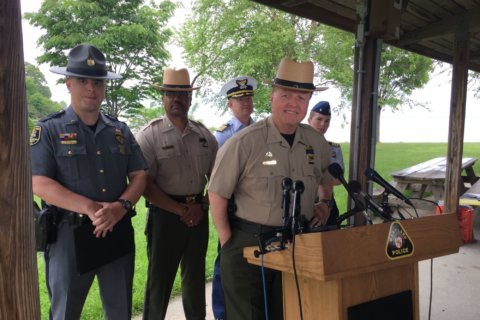
ANNAPOLIS — The survival of a kayaker stranded in deadly cold water on the Chesapeake Bay in April is being touted as an example of how following water safety advice can save lives.
Sean Danielson’s kayak overturned during a fishing trip on the bay April 18. For more than two hours in 47-degree water, he clung to the side of the kayak at the mouth of the West River.
As darkness fell, the belly of his bright-green watercraft was noticed by Lana and Robert Lohe, who were nearing the end of a trip home from the Bahamas.
“Good people watch out for each other in times of trouble,” said Col. Ken Ziegler Jr., of the Maryland Natural Resources Police.
The Lohes — with help from two more boaters, William Walls and Mark Marra — got Danielson to shore quickly on Marra’s powerboat. They received certificates of appreciation from the Maryland Natural Resources Police at a news conference on Tuesday.
At the event, officials detailed all the things that went right and how they corresponded to recommended practices.
“Sean is living proof that what we say can work,” Ziegler said. “Wearing your personal flotation device is one of the most important things you can do.”
Life jackets
Danielson’s life jacket kept him afloat for more than two hours while extreme hypothermia caused him to go in and out of consciousness. Modern life jackets offer myriad comfortable options — Ziegler said many people might remember them as being made of heavy foam rubber that sticks to you when it’s hot.
Noise maker
A sound-producing device as simple as a whistle can help alert potential help. He didn’t remember it, but rescuer Lana Lohe said Danielson wouldn’t quit blowing his whistle when she and her husband were attempting to pull him onto their sail boat.
“We’re not going to leave you, we’re not going to leave you,” she remembers telling him that day.
VHF radio
A call for help from a cellphone goes to one person, while a call on VHF radio Channel 16 goes to anyone who is listening. Rescuers on the slow-moving sailboat that got Danielson out of the water were able to transfer him to Marra’s powerboat when Marra and Walls responded to the radio call for help.
The U.S. Coast Guard also recommends that boaters keep close watch on the weather and take a boating safety class.
Also at the news conference, the Maryland Transportation Authority police announced a new partnership to expand the number of police officers doing safety patrols on state waterways. Officers in the Transportation Authority marine unit now have a memorandum of understanding allowing them to enforce Maryland Natural Resources laws.
The MDTA has five boats that patrol water near the Port of Baltimore and state transportation facilities such as bridges.
“I’m asking all boat operators to make safety their number-one priority while out on the water this summer,” said Lieut. Kevin Ayd, of the Maryland Transportation Authority Police. “One death on Maryland waterways is one too many.”

